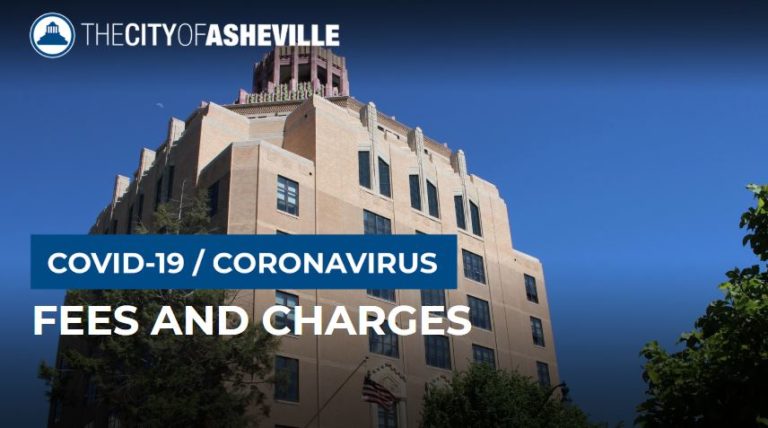To help reduce economic hardship posed by the COVID-19 pandemic, the City of Asheville will continue to waive or suspend collection of fees on a case-by-case basis.
Asheville City Council approved this action during their Jan. 12 meeting.
The fees that may be waived include temporary uses, outdoor dining, a-frame signage, push carts, and associated trade permits.
Many Asheville businesses are either closed or operating in a limited capacity due to the COVID-19 pandemic, creating substantial economic challenges for owners, employees, and customers. Some businesses have requested temporary relief from City fees and charges and loan payments in an effort to help reduce their expenses, according to Development Services Director Ben Woody.
City Council initially delegated authority to the City Manager to defer and/or waive fees and this was done on a case-by-case basis in 2020. At the Jan. 12 meeting, Council adopted an ordinance reaffirming and ratifying its intention that the fee-waiver authority provided for in Ordinance No. 4801 should continue for the duration of the locally declared COVID-19 State of Emergency.
While the fiscal impact of this action will result in approximately $13,000 in deferred or lost City revenue, it supports the Council goals of a financially resilient City and thriving local economy.
“These are challenging times for our residents and especially for our local businesses,” said Asheville City Manager Debra Campbell. “We are pulling together as a community, and as a city, to support businesses particularly hit hard by economic hardship experienced as a result of the pandemic.”
Transit fares continue to be suspended at an estimated monthly revenue loss of approximately $58,000. Federal CARES Act revenue is expected to offset a portion of this revenue loss.
The City of Asheville also installed an AVL Shares Space program to facilitate business expansions into outdoor areas, such as streets, sidewalks and parking areas, to help businesses operate more safely under health guidelines designed to help mitigate the transmission of COVID.
You can read the ordinance at this link.
